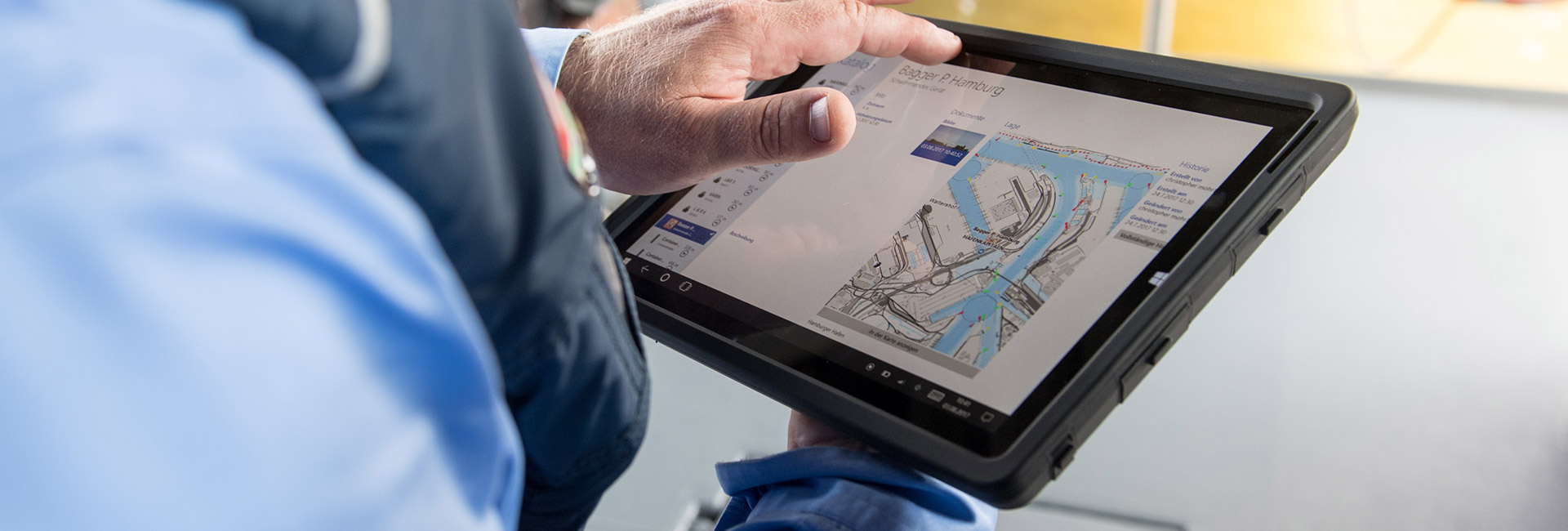
In the port of Hamburg, state-of-the-art digital intelligence guarantees a smooth, efficient operation. The control systems used by the HPA are world-leading, while the interaction between sensor technology and analysis, forecasting and information systems delivers huge efficiency improvements. This is not only good for business, it also protects the environment. The digital trend also ensures that we will continue to maintain our leading position in Germany and Europe. Thanks to its smartPORT philosophy, the Hamburg Port Authority is achieving sustainable economic growth and maximum benefit for its customers and the people of Hamburg, while minimising its environmental impact. In addition, smartPort is constantly being developed and adapted.
Thanks to intelligent solutions for the flow of traffic and goods, the HPA is improving the port's efficiency. smartPORT logistics combines economic and ecological aspects in three sub-sectors: traffic flows, infrastructure and the flow of goods. An intermodal PortTraffic centre for sea, rail and road transport forms the basis for networking the flow of traffic. Intelligent networking is a prerequisite for smooth, efficient transport in the port of Hamburg and ultimately for the flow of goods: optimum data capture and rapid information sharing allow logistics managers, carriers and agents to select the most efficient means of transport for their goods.
The HPA promotes environmentally-friendly mobility and advocates reduced energy consumption. smartPORT energy therefore helps limit its dependence on conventionally generated power, reduce emissions and save money. It focuses on three core areas: renewable energies, energy efficiency and mobility.
